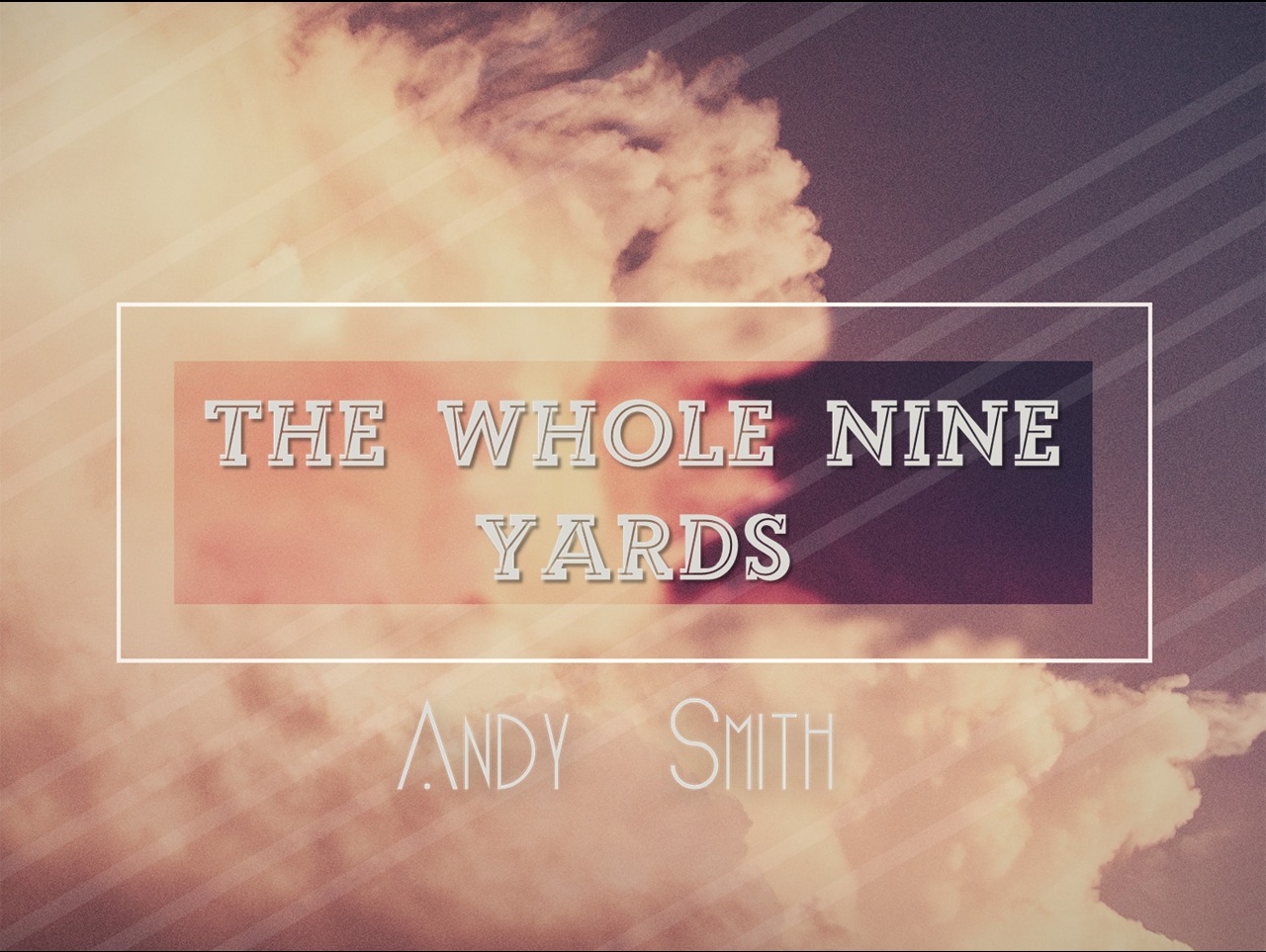“The purpose of this chapter, and in fact the entire book, is to educate you and equip you to go the whole nine yards. They unloaded a clip. You and I will unload our hearts. From its original context this phrase is associated with destructive potential. Within the framework of forgiveness the phrase is charged with healing potential.”
To View Entire Article, Click Here
To Download The Article Directly to Your Computer, Click Here
To View PowerPoint, Click Here
The Whole Nine Yards
By Andy Smith.
Some scholars assert that “the whole nine yards” originated as a military term. The aircraft ammunition belts on a P38 Lightning were nine yards long and discharging the entire belt of ammunition was referred to as going the whole nine yards. The purpose of this chapter, and in fact the entire book, is to educate you and equip you to go the whole nine yards. They unloaded a clip. You and I will unload our hearts. From its original context this phrase is associated with destructive potential. Within the framework of forgiveness the phrase is charged with healing potential.
When dealing with offenses, we have to do it all– go for broke, don’t leave a stone unturned. Or removed. Whatever slogan works for you is fine. The point is that we have to allow forgiveness to work for us and free us from the personal bondages of resentment, grudges, and bitterness.
The previous chapter outlined our personal forgiveness script. Specificity really does make a difference. It enhances communication, clarity, and consistency.
Some may feel as if a scripted apology is superficial. The apology may be superficial, but it won’t be because it is scripted. The only repetitive parts are “I’m sorry for” and “Please forgive me for.” You fill in the blanks and it will be the words you choose that will make it real or phony, deep or shallow.
And in case it’s on your mind, who said you had to feel anything during this whole process anyway? I will address this more deeply during the chapter about the myths of forgiveness, but a quick mention right now could go a long way. Feelings of emotion can facilitate forgiveness. In some instances they might present a barrier to it. Since the act of forgiveness is a spiritual act, it goes beyond our physical and emotional states. I can be red with anger or pale with shock. My eyes can be flushed with tears or stoic with thought. My emotions are not the primary issue. I need the power of the Spirit to help me make the decision to forgive. The act is spiritual. It is a decision. People tend to throttle their forgiveness with their emotions and that is why so many continue to carry the anger of resentment and bitterness. Feelings are variables that affect me, but the act of forgiveness is beyond emotion. At least it can be.
There is a real difference between saying, “I’m sorry” and “Please forgive me.” This book is really about the freedom we receive when we forgive someone, but this is a great time to discuss the part of the offender the one asking for forgiveness.
When I was a middle school teacher, classroom management consumed the majority of my time. It seemed as if rudeness was part of the lunch menu and most of my sixth-graders were binging on it. One of my classes met just after lunch. The lunchroom staff dismissed students at different times and they straggled to class in waves. One afternoon two students arrived early. The boy was trying to flirt with the girl when she made a very rude comment about his height or lack
thereof. My students knew that rudeness was dealt with immediately and I demanded that they practice the forgiveness script that I used at home. I was finishing up my own lunch and a quick glance told her what I expected to be done next. She quickly said, “I’m sorry,” and then went about organizing her book bag. Nice try.
To View Entire Article, Click Here
To Download The Article Directly to Your Computer, Click Here



